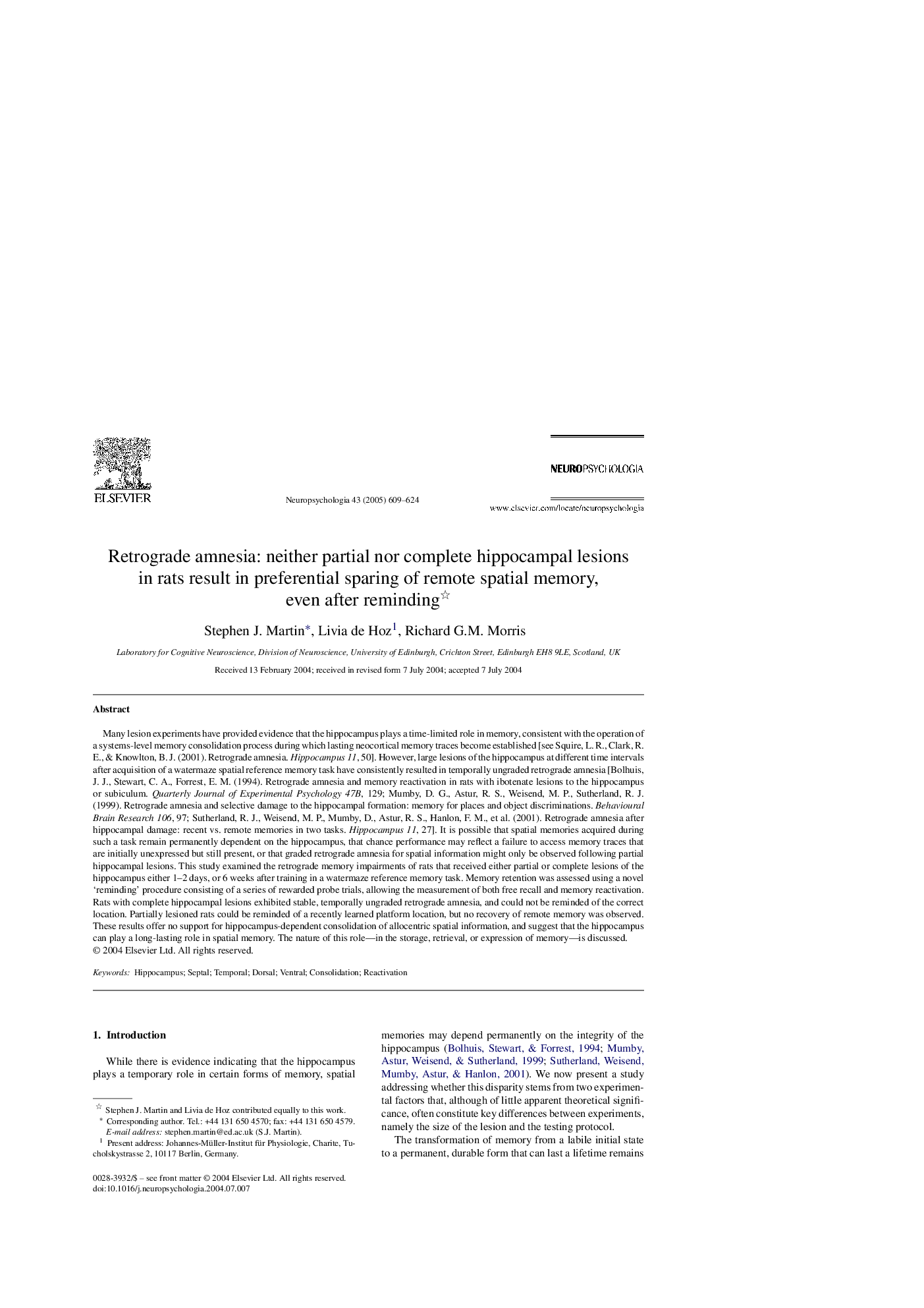Many lesion experiments have provided evidence that the hippocampus plays a time-limited role in memory, consistent with the operation of a systems-level memory consolidation process during which lasting neocortical memory traces become established [see Squire, L. R., Clark, R. E., & Knowlton, B. J. (2001). Retrograde amnesia. Hippocampus 11, 50]. However, large lesions of the hippocampus at different time intervals after acquisition of a watermaze spatial reference memory task have consistently resulted in temporally ungraded retrograde amnesia [Bolhuis, J. J., Stewart, C. A., Forrest, E. M. (1994). Retrograde amnesia and memory reactivation in rats with ibotenate lesions to the hippocampus or subiculum. Quarterly Journal of Experimental Psychology 47B, 129; Mumby, D. G., Astur, R. S., Weisend, M. P., Sutherland, R. J. (1999). Retrograde amnesia and selective damage to the hippocampal formation: memory for places and object discriminations. Behavioural Brain Research 106, 97; Sutherland, R. J., Weisend, M. P., Mumby, D., Astur, R. S., Hanlon, F. M., et al. (2001). Retrograde amnesia after hippocampal damage: recent vs. remote memories in two tasks. Hippocampus 11, 27]. It is possible that spatial memories acquired during such a task remain permanently dependent on the hippocampus, that chance performance may reflect a failure to access memory traces that are initially unexpressed but still present, or that graded retrograde amnesia for spatial information might only be observed following partial hippocampal lesions. This study examined the retrograde memory impairments of rats that received either partial or complete lesions of the hippocampus either 1–2 days, or 6 weeks after training in a watermaze reference memory task. Memory retention was assessed using a novel ‘reminding’ procedure consisting of a series of rewarded probe trials, allowing the measurement of both free recall and memory reactivation. Rats with complete hippocampal lesions exhibited stable, temporally ungraded retrograde amnesia, and could not be reminded of the correct location. Partially lesioned rats could be reminded of a recently learned platform location, but no recovery of remote memory was observed. These results offer no support for hippocampus-dependent consolidation of allocentric spatial information, and suggest that the hippocampus can play a long-lasting role in spatial memory. The nature of this role—in the storage, retrieval, or expression of memory—is discussed.


